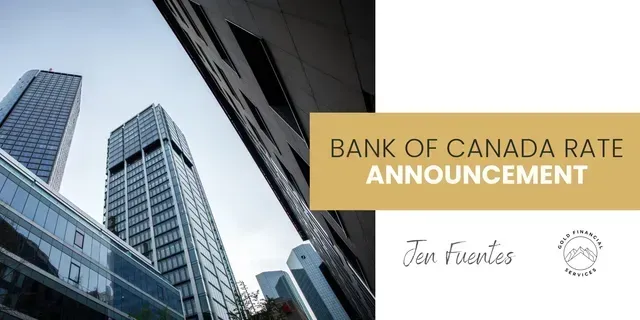by Jen Fuentes
•
9 April 2025
One of the major qualifiers lenders look at when considering your application for mortgage financing is your debt service ratios. Now, before we get started, if you prefer to have someone walk through these calculations with you, assess your financial situation, and let you know exactly where you stand, let’s connect. There is no use in dusting off the calculator and running the numbers yourself when we can do it for you! However, if you’re someone who likes to know the nitty-gritty of how things work instead of simply accepting that's just the way it is, this article is for you. But be warned, there are a lot of mortgage words and some math ahead; with that out of the way, let’s get started! “Debt servicing” is the measure of your ability to meet all of your financial obligations. There are two ratios that lenders examine to determine whether you can debt service a mortgage. The first is called the “gross debt service” ratio, or GDS, which is the percentage of your monthly household income that covers your housing costs. The second is called the “total debt service” ratio, or TDS, which is the percentage of your monthly household income covering your housing costs and all your other debts. GDS is your income compared to the cost of financing the mortgage, including your proposed mortgage payments (principal and interest), property taxes, and heat (PITH), plus a percentage of your condo fees (if applicable). Here’s how to calculate your GDS. Principal + Interest + Taxes + Heat / Gross Annual Income Your TDS is your income compared to your GDS plus the payments made to service any existing debts. Debts include car loans, line of credit, credit card payments, support payments, student loans, and anywhere else you’re contractually obligated to make payments. Here’s how to calculate your TDS. Principal + Interest + Taxes + Heat + Other Debts / Gross Annual Income With the calculations for those ratios in place, the next step is to understand that each lender has guidelines that outline a maximum GDS/TDS. Exceeding these guidelines will result in your mortgage application being declined, so the lower your GDS/TDS, the better. If you don’t have any outstanding debts, your GDS and TDS will be the same number. This is a good thing! The maximum ratios vary for conventional mortgage financing based on the lender and mortgage product being offered. However, if your mortgage is high ratio and mortgage default insurance is required, the maximum GDS is 39% with a maximum TDS of 44%. So how does this play out in real life? Well, let’s say you’re currently looking to purchase a property with a payment of $1700/mth (PITH), and your total annual household income is $90,000 ($7500/mth). The calculations would be $1700 divided by $7500, which equals 0.227, giving you a gross debt service ratio of 22.7%. A point of clarity here. When calculating the principal and interest portion of the payment, the Government of Canada has instituted a stress test. It requires you to qualify using the government's qualifying rate (which is higher), not the actual contract rate. This is true for both fixed and variable rate mortgages. Now let’s continue with the scenario. Let’s say that in addition to the payments required to service the property, you have a car payment of $300/mth, child support payments of $500/mth, and between your credit cards and line of credit, you’re responsible for another $700/mth. In total, you pay $1500/mth. So when you add in the $1700/mth PITH, you arrive at a total of $3200/mth for all of your financial obligations. $3200 divided by $7500 equals 0.427, giving you a total debt service ratio of 42.7%. Here’s where it gets interesting. Based on your GDS alone, you can easily afford the property. But when you factor in all your other expenses, the TDS exceeds the allowable limit of 42% (for an insured mortgage anyway). So why does this matter? Well, as it stands, you wouldn’t qualify for the mortgage, even though you are likely paying more than $1700/mth in rent. So then, to qualify, it might be as simple as shuffling some of your debt to lower payments. Or maybe you have 10% of the purchase price saved for a downpayment, changing the mortgage structure to 5% down and using the additional 5% to pay out a portion of your debt might be the difference you need to bring it all together. Here’s the thing, as your actual financial situation is most likely different than the one above, working with an independent mortgage professional is the best way to give yourself options. Don’t do this alone. Your best plan is to seek and rely on the advice provided by an experienced independent mortgage professional. While you might secure a handful of mortgages over your lifetime, we do this every day with people just like you. It’s never too early to start the conversation about mortgage qualification. Going over your application and assessing your debt service ratios in detail beforehand gives you the time needed to make the financial moves necessary to put yourself in the best financial position. So if you find yourself questioning what you can afford or if you want to discuss your GDS/TDS ratios to understand the mortgage process a little better, please get in touch. It would be a pleasure to work with you, we can get a preapproval started right away.





